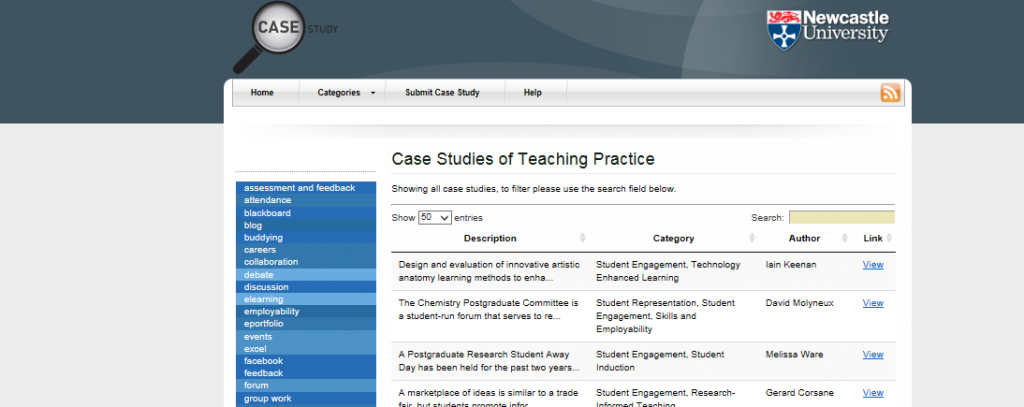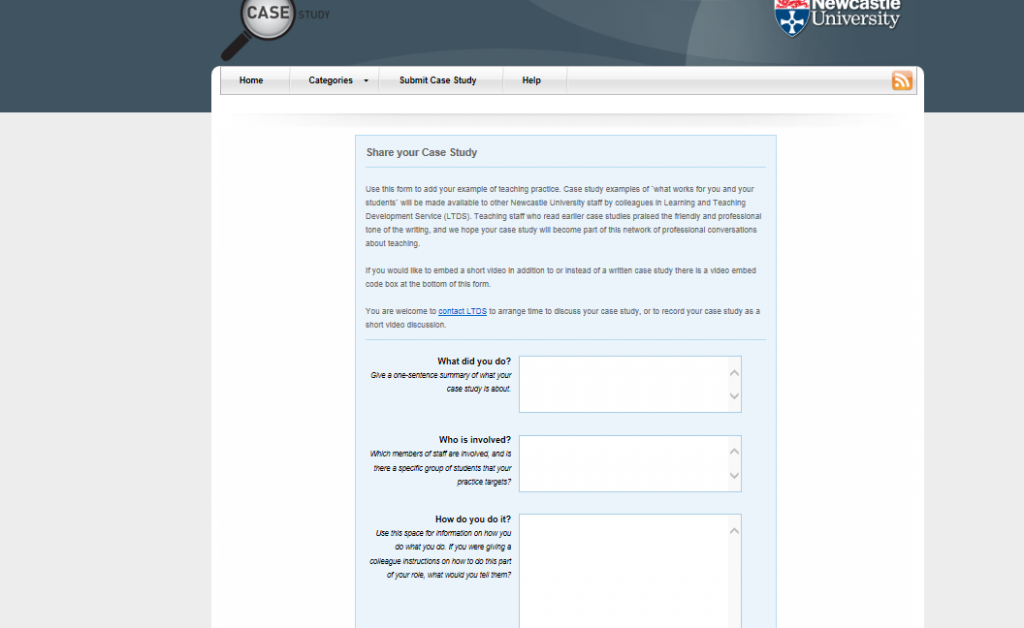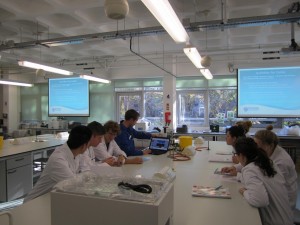The University will undergo QAA Higher Education Review in the week commencing 18 April 2016. Higher Education Review (HE Review) is the process of review for all higher education institutions in the UK.
The University last underwent review by QAA in December 2009 according to the QAA’s Institutional audit process.
The overall aim of HE Review is to inform students and the wider public as to whether an institution:
- sets and maintains UK-agreed threshold academic standards for its higher education awards
- provides learning opportunities which allow students to achieve those higher education awards and qualifications
- provides information for the general public, prospective students, current students, students on completion of their studies, and those with responsibility for academic standards and quality that is fit for purpose, accessible and trustworthy
- plans effectively to enhance the quality of its higher education provision
HE Review considers these key issues through a review process in which review teams consider the academic quality and standards of an institution through the investigation of core structures, policies and processes for quality management, and the way in which an institution addresses these issues in relation to a specific theme which can vary from year to year.
To achieve these aims, QAA convenes a team of peer reviewers – staff and students from other providers.
Review teams are asked to make judgements on these four key issues, and will also identify features of good practice, affirm developments or plans already in progress and make recommendations for action.
What will this involve?
The substantive element of the review process is a week-long visit to the institution which allows the review team to meet with staff and students (and other stakeholders where appropriate) and to scrutinise further information.
During the visit will include contact with staff, particularly those with institutional and faculty responsibilities for quality assurance. Review team meetings with staff will also involve a sample of colleagues working at academic unit level, including those with direct responsibility for educational partnerships such as representatives of partner institutions or staff at overseas campuses, and other academic and professional service staff with responsibility for supporting learning, teaching and the student experience.
The review team may also ask to meet with recent graduates, external examiners and employers.
They will certainly want to meet with a small sample of students (for example up to 30-40 across two or three meetings is typical), to find out their views of the learning experience they receive at Newcastle.
The University is also required to submit a Self-Evaluation Document (SED) which must be received by QAA by 25 January 2016.
The SED has three main functions:
- to give the review team an overview of the University, including our track record in managing quality and standards, and details of external reference points that we are required to consider (such as those of accrediting bodies);
- to describe the University’s approach to assuring the academic standards and quality of its provision;
- to explain to the review team how we know that our approach is effective in meeting the Quality Code Expectations (and other external reference points), and how it could be further improved.
We will be required to provide a significant amount of supporting documentation to illustrate and substantiate the narrative within the SED. This allows the team to test whether what our SED says we do, is what we do in practice and assess how effective it is.
Review teams also have the right to request additional documentation. Experience of HE Review at other universities indicates that significant amounts of additional documentation are typically required by review teams.
It is therefore possible that any documentation relating to the quality management of the areas under review might be requested, including those held by academic units and faculties.
What will the team be looking for?
Higher Education Review has a core element and a thematic element.
The core element focuses on academic standards, quality of learning opportunities, information, and enhancement.
The thematic element focuses on an area which is regarded as particularly worthy of further analysis or enhancement. Themes, which change periodically, are chosen by the Higher Education Review Group – which includes representatives of HEFCE, Universities UK, GuildHE and the Association of Colleges. The University is required to explore one of these themes.
Following discussions involving a number of colleagues including representatives of NUSU, the PVC Learning and Teaching recommended to ULTSEC on 14 January that the University should select the theme of Student Employability for the review in 2016.
This theme is the logical choice for the University, as it would allow special emphasis to be given to the work that has been undertaking to develop students’ employability and entrepreneurial skills, and to give a detailed picture in our submission of how the University has made further progress since the good practice commendation received by the University in this area in the last QAA audit in 2009.
Who will this involve?
A Higher Education Review Steering Group, chaired by the PVC Learning and Teaching, is overseeing the production of the Self-Evaluation Document and supporting documentation, which is being coordinated by staff in the Learning and Teaching Development Service (LTDS).
When will it start?
In terms of other principal stages in the University’s preparation for the review, in mid-late October 2015 the QAA will inform the University of the size and membership of the review team. In early December 2015, a preparatory meeting with QAA will take place, the main purpose of which is to discuss the information to be provided to QAA and will therefore include those most immediately involved with the production of the SED and the student submission, and with responsibility for the operational arrangements for the review.
Around one month before the review visit, the QAA will inform the University of the duration of the review visit, the team’s main lines of enquiry, who the team wishes to meet, and any further requests for documentary evidence.
So what’s the point?
The review culminates in the publication of a report containing the judgements and other findings. The University is obliged to produce and publish an action plan in consultation with students, describing how it intends to respond to those findings.






